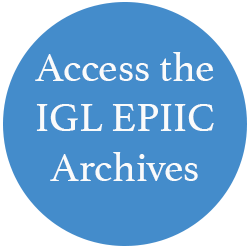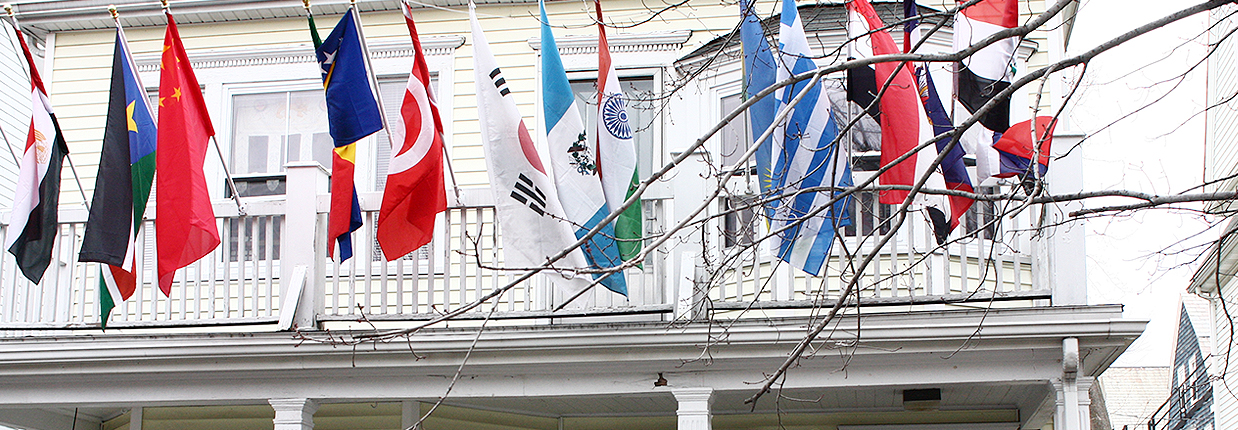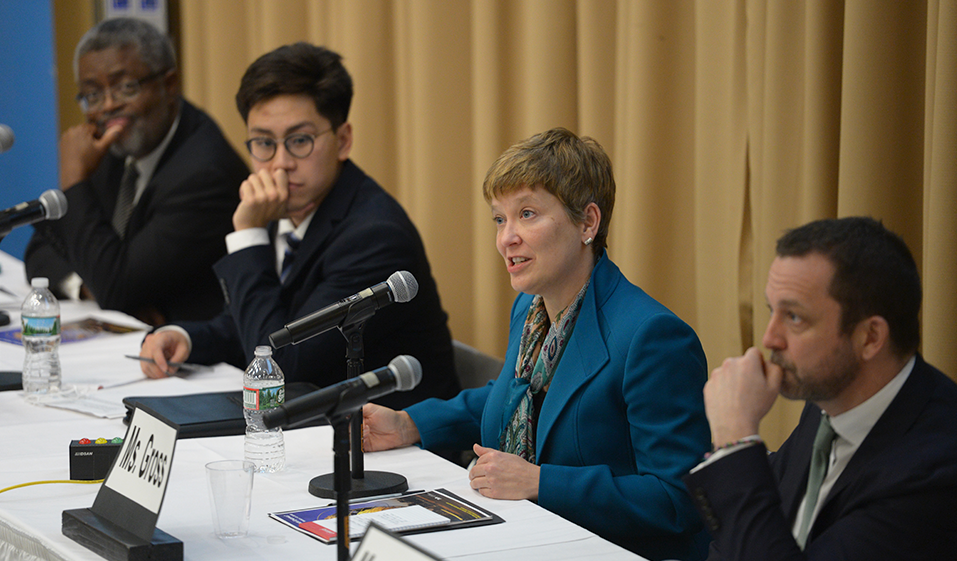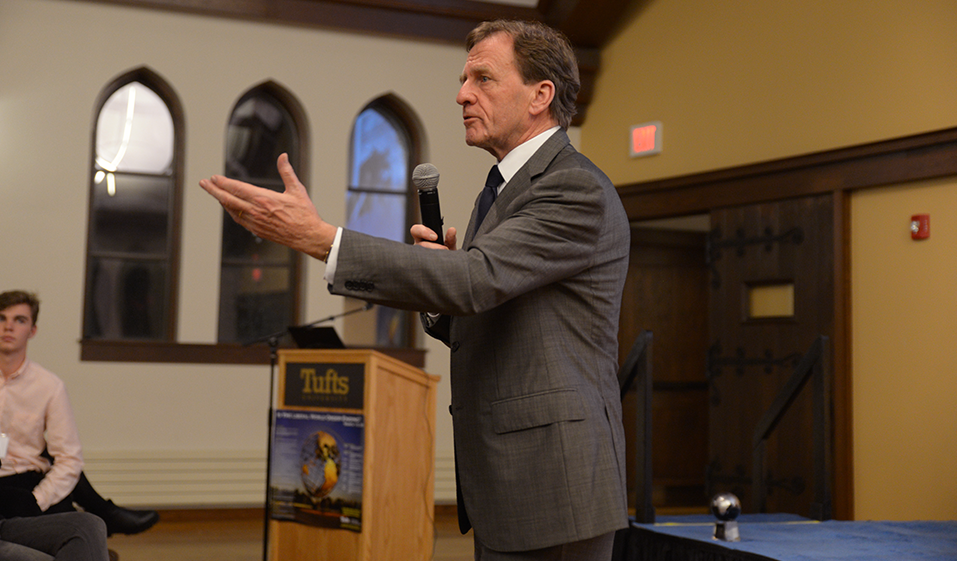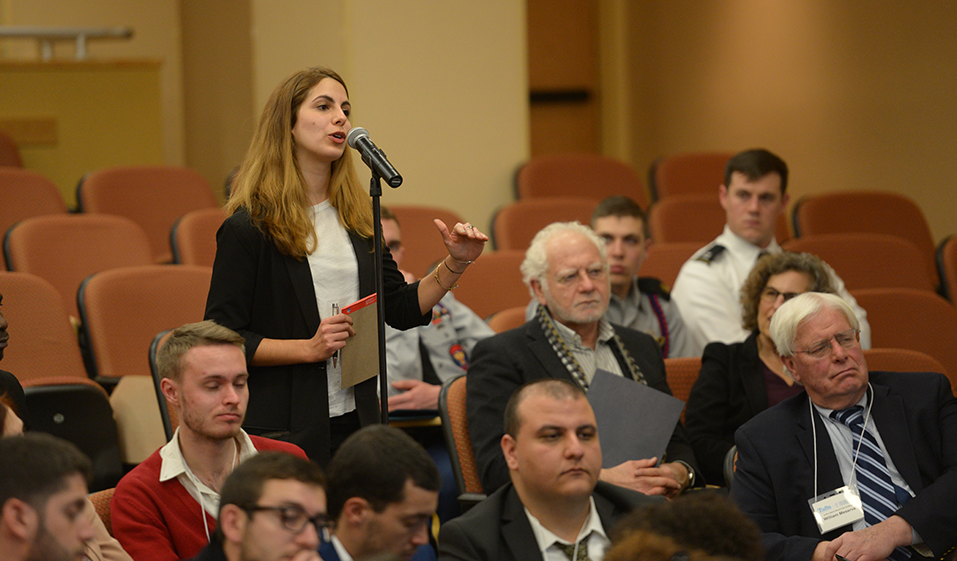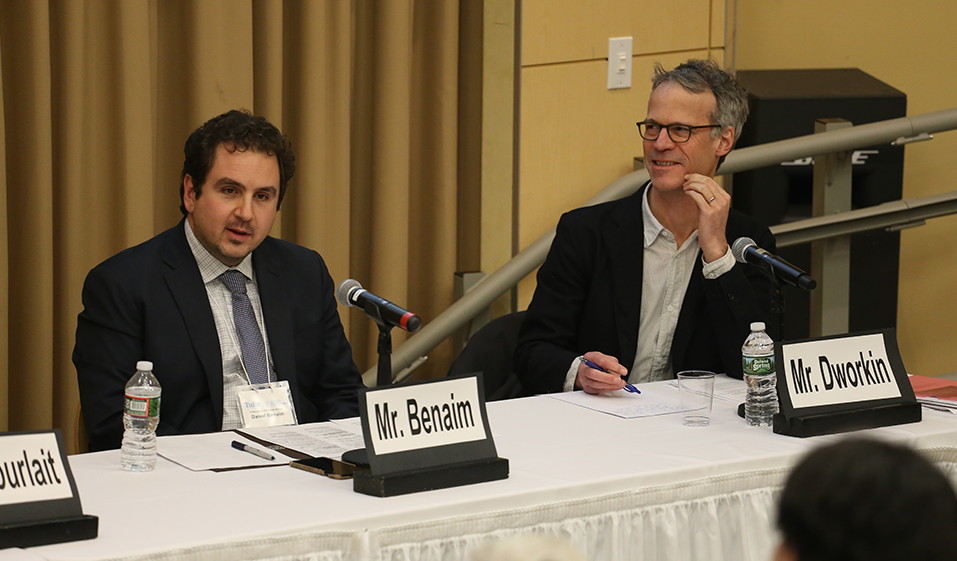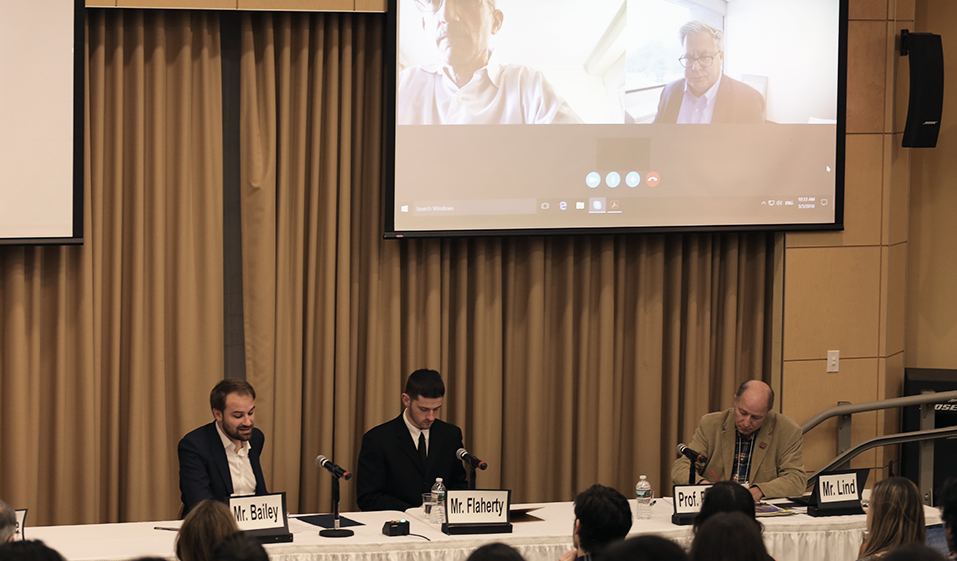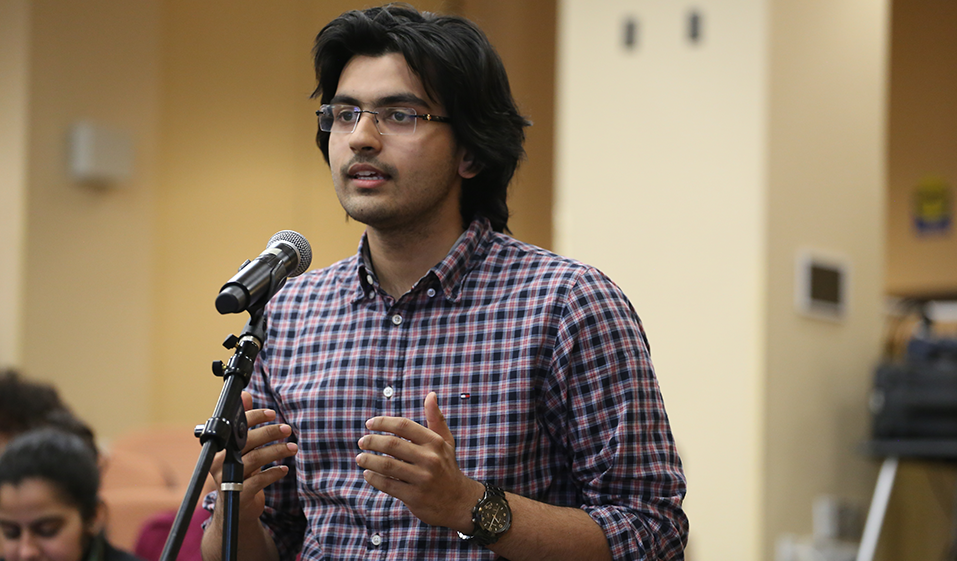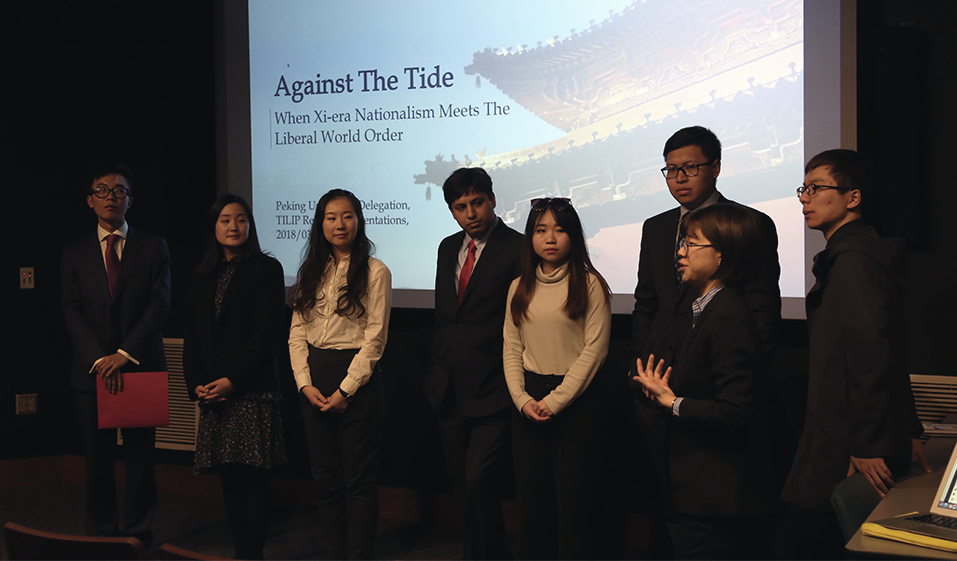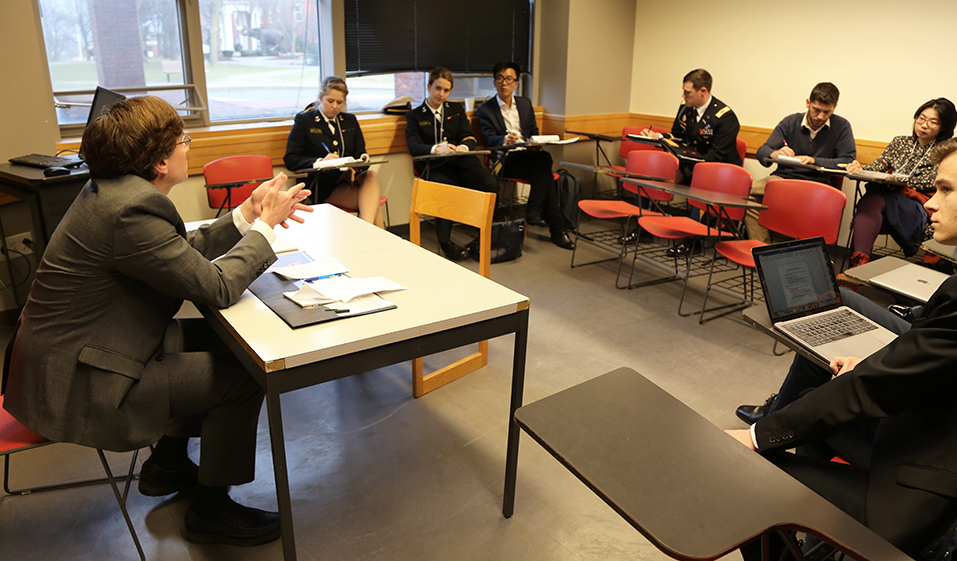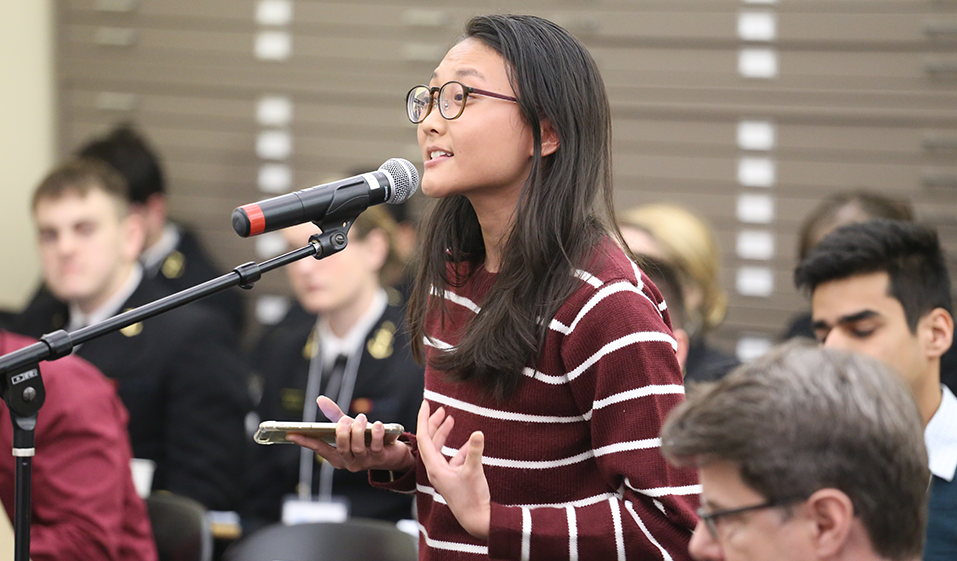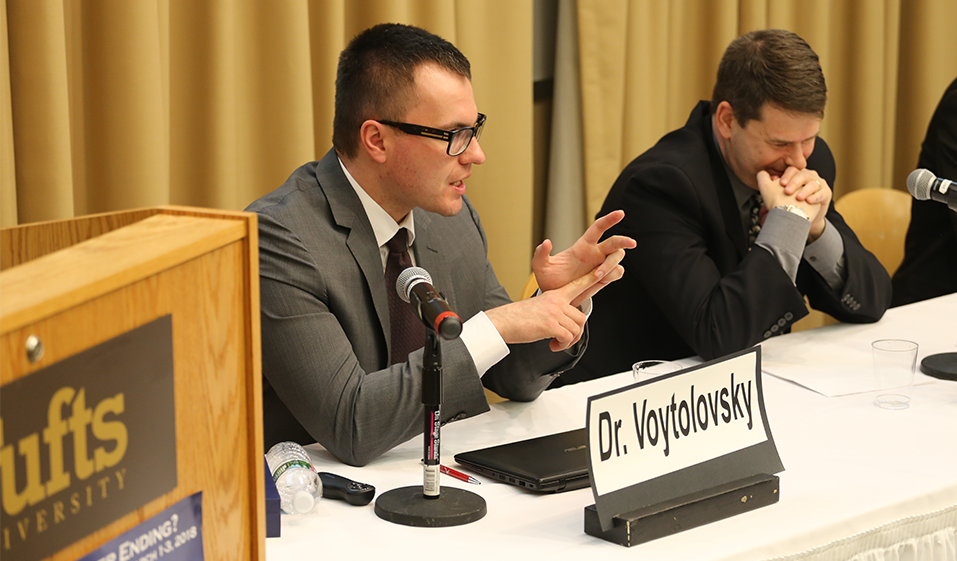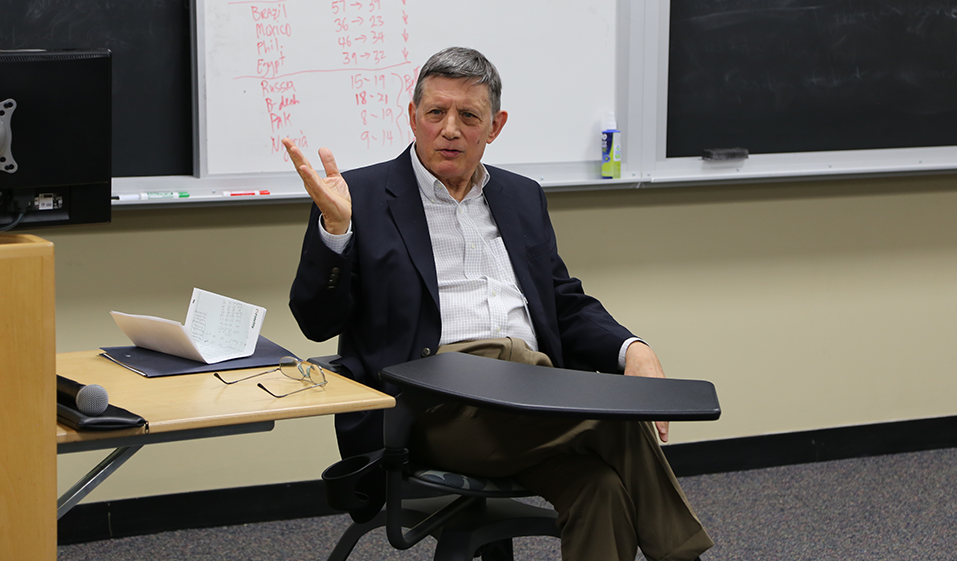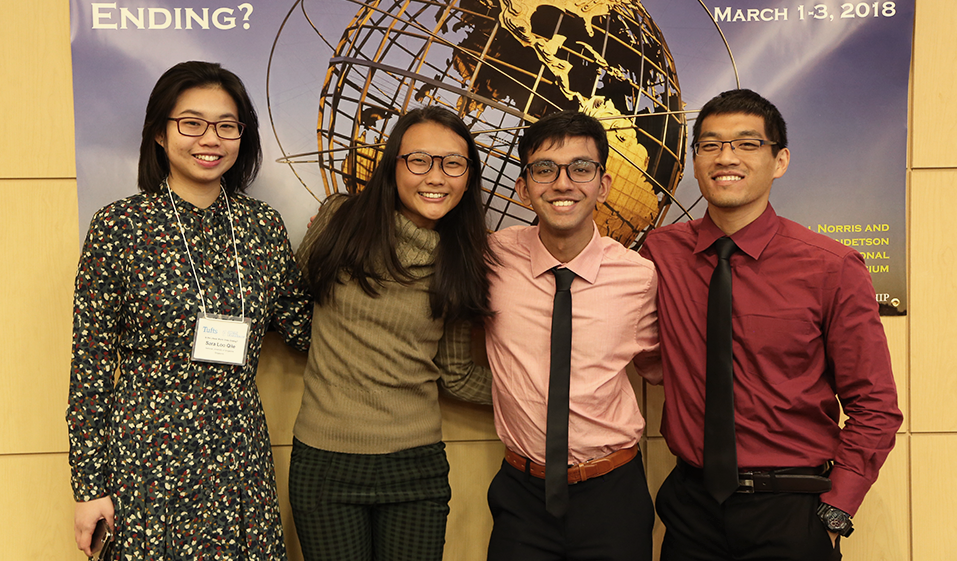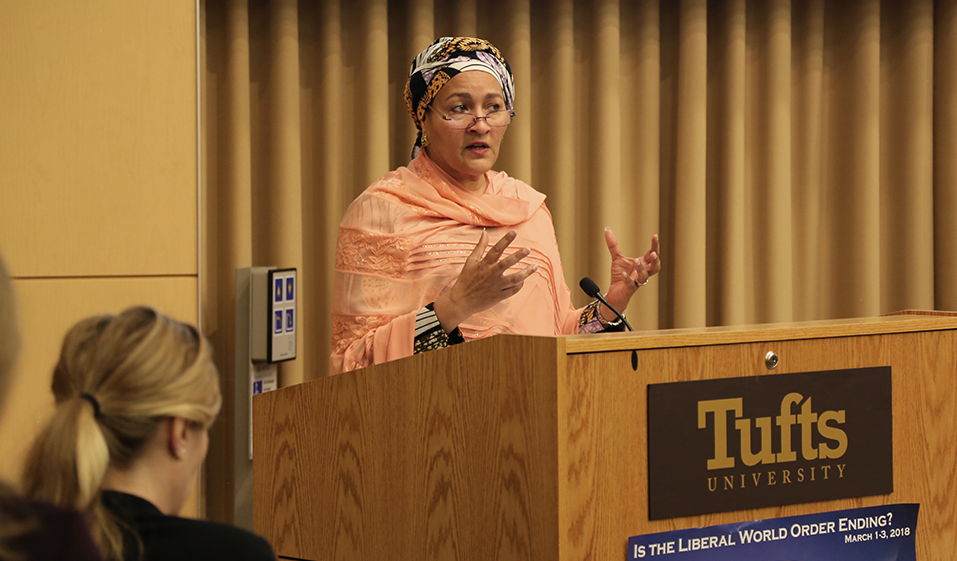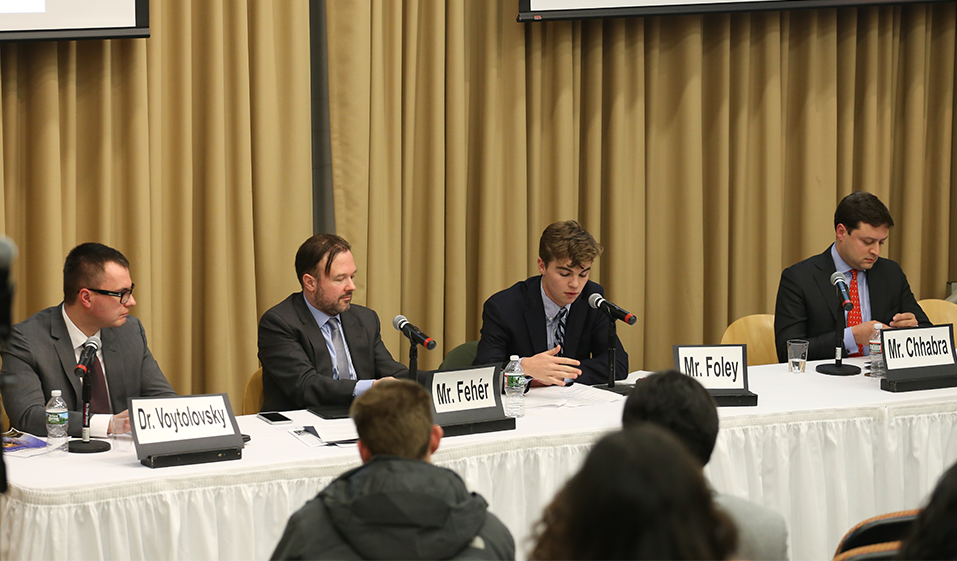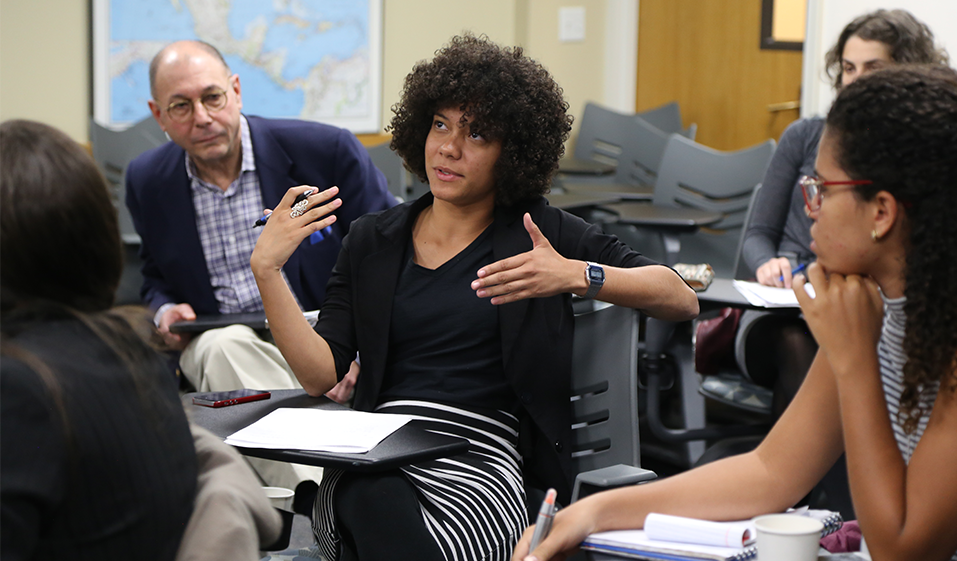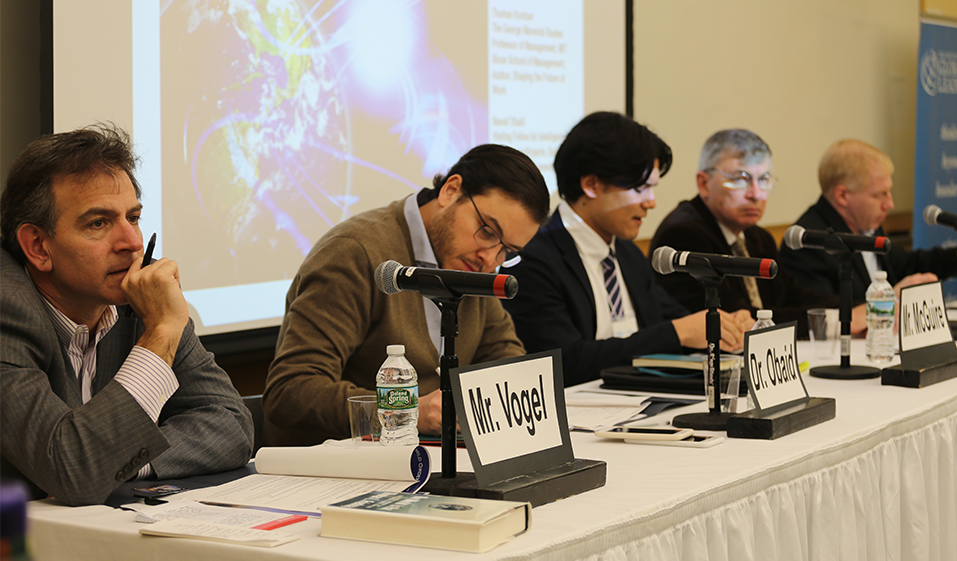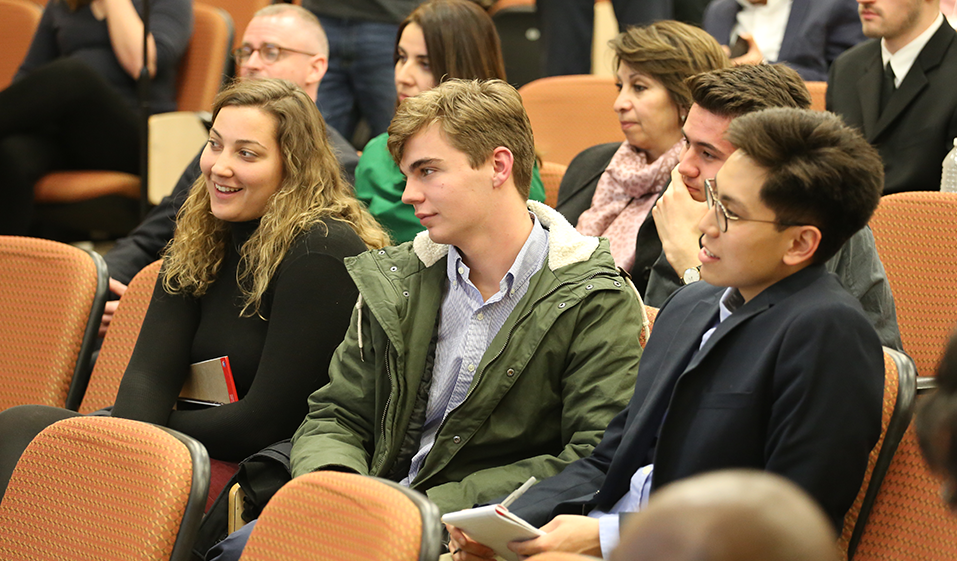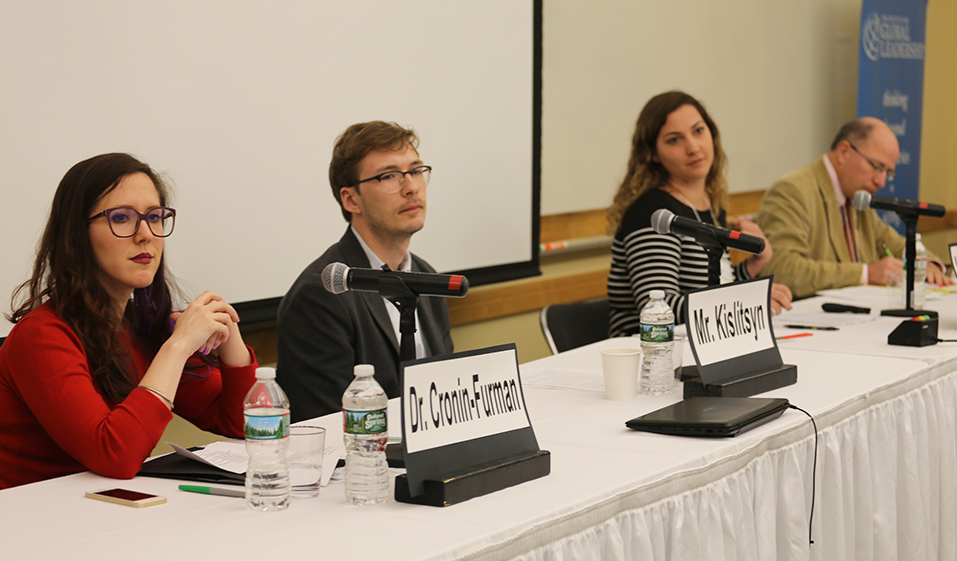EPIIC is a carefully integrated, multidisciplinary program. Through its innovative and rigorous curricula and projects, EPIIC prepares young people for informed activity in their communities, whether locally, nationally or globally.
The Course
At EPIIC's core is the year-long, multidisciplinary course -- The Sherman Teichman Education for Public Inquiry (EPIIC) Endowed Colloquium -- on a global theme. Undergraduate and graduate students of diverse nationalities, viewpoints, experiences, and interests participate in this rigorous colloquium that stresses critical, analytical, and normative thinking. Students are encouraged to confront the ambiguity and complexity of EPIIC's annual, global theme through a multi-disciplinary examination of the issues and controversies that the topic reflects. They are taught the subject under investigation by a broad range of distinguished academics and practitioners and as active participants in defining the issues through classroom discussions, extensive readings, and independent research. There is an emphasis both on individual progress and on the collaborative effort -- in essence, on growing as an intellectual team. Students produce tangible outcomes of their studies through their individual research papers or projects, the international symposium in late February, and the Inquiry simulation for high-school students in early April, as well as other activities.
In 2011, on the occasion of the 25th Anniversary of EPIIC - Education for Public Inquiry and International Citizenship, the core program of the Institute for Global Leadership, the alumni of EPIIC endowed the colloquium in honor of their teacher and mentor, the Institute's Founding Director, Sherman Teichman. Their funds contribute to covering the expenses for the colloquium's guest lecturers, teaching assistants, seminar mentors, an annual Outward Bound weekend, syllabus materials, subsidies for text books and other EPIIC expenses. The endowment helps ensure the high standard and quality of this preparatory course of the annual EPIIC symposium and enables all Tufts students to partake fully in its activities.
Symposium
The Norris and Margery Bendetson International EPIIC Symposium is an annual multi-day public forum featuring scores of international practitioners, activists, academics, public intellectuals, and journalists. EPIIC's symposia -- consisting of presentations, panel discussions, topical forums, informal gatherings, multimedia and dramatic presentations, and workshops -- are intellectually wide-ranging and accessible. The perspectives of the participants are intentionally diverse, often competing, anda at times adversarial, providing a continuum of viewpoints on the issues being discussed.
The 2018-2019 EPIIC colloquium will critically examine the multidimensional aspects of migration. The 2019 symposium will be EPIIC's 34rd annual symposium
